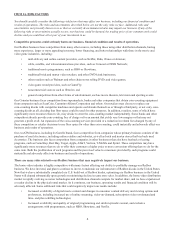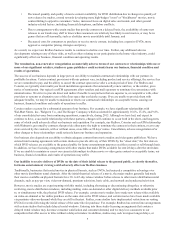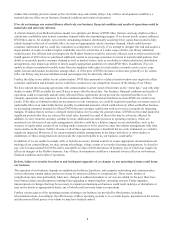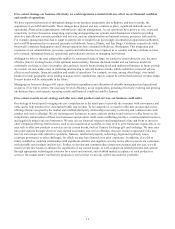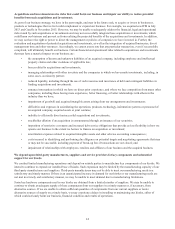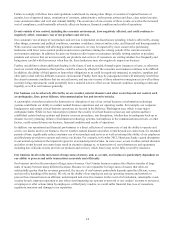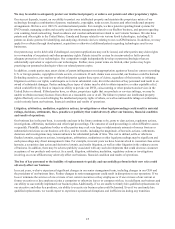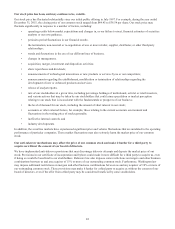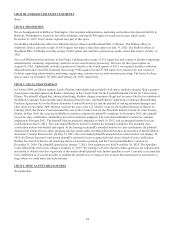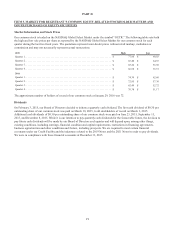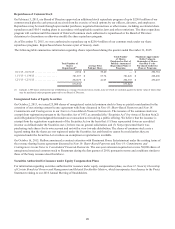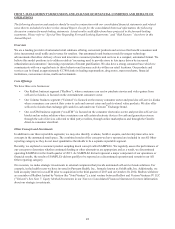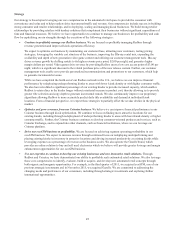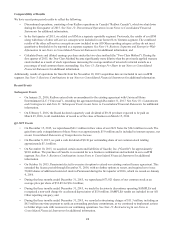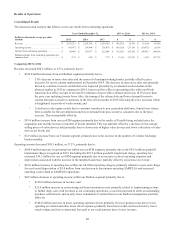Redbox 2015 Annual Report Download - page 24
Download and view the complete annual report
Please find page 24 of the 2015 Redbox annual report below. You can navigate through the pages in the report by either clicking on the pages listed below, or by using the keyword search tool below to find specific information within the annual report.Our stock price has been, and may continue to be, volatile.
Our stock price has fluctuated substantially since our initial public offering in July 1997. For example, during the year ended
December 31, 2015, the closing price of our common stock ranged from $84.45 to $36.54 per share. Our stock price may
fluctuate significantly in response to a number of factors, including:
• operating results below market expectations and changes in, or our failure to meet, financial estimates of securities
analysts or our own guidance;
• period-to-period fluctuations in our financial results;
• the termination, non-renewal or re-negotiation of one or more retailer, supplier, distributor, or other third-party
relationships;
• trends and fluctuations in the use of our different lines of business;
• changes in management;
• acquisition, merger, investment and disposition activities;
• share repurchases and dividends;
• announcements of technological innovations or new products or services by us or our competitors;
• announcements regarding the establishment, modification or termination of relationships regarding the
development of new or enhanced products and services;
• release of analyst reports;
• mix of our stockholders at a given time, including percentage holdings of institutional, activist or retail investors,
and various actions that may be taken by our stockholders that could cause speculation or market perception
relating to our stock that is inconsistent with the fundamentals or prospects of our business;
•the level of demand for our stock, including the amount of short interest in our stock;
• economic or other external factors, for example, those relating to the current economic environment and
fluctuations in the trading price of stocks generally;
• ineffective internal controls; and
• industry developments.
In addition, the securities markets have experienced significant price and volume fluctuations that are unrelated to the operating
performance of particular companies. These market fluctuations may also seriously harm the market price of our common
stock.
Our anti-takeover mechanisms may affect the price of our common stock and make it harder for a third party to
acquire us without the consent of our board of directors.
We have implemented anti-takeover provisions that may discourage takeover attempts and depress the market price of our
stock. Provisions in our certificate of incorporation and bylaws could make it more difficult for a third party to acquire us, even
if doing so would be beneficial to our stockholders. Delaware law also imposes some restrictions on mergers and other business
combinations between us and any acquirer of 15% or more of our outstanding common stock. Furthermore, Washington law
may impose additional restrictions on mergers and other business combinations between us and any acquirer of 10% or more of
our outstanding common stock. These provisions may make it harder for a third party to acquire us without the consent of our
board of directors, even if the offer from a third party may be considered beneficial by some stockholders.
16


